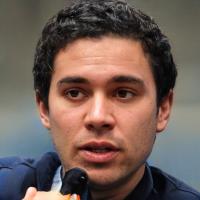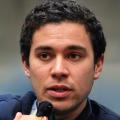Jason Trout
posted a blog.
In the last few years, educators and philosophers interested in the reading process have refined and expanded the ideas and concept about reading and thinking. Two main themes have emerged from this research:
Readers assume constantly shifting attitudes while trying to understand any text.
Literature is a powerful context for teaching and learning critical thought.
Langer (1989) proposes four kinds of relationships that occur during the reading process as readers' attitudes shift while they try to understand the text:
Being out and stepping in. Readers use the information from the text and their background knowledge to get enough information to "step into" the author's vision. In literature, readers try to make an initial acquaintance with the character, plot, and setting; in exposition, they try to figure out what the topic is about.
Being in and moving through. Readers immerse themselves in the author's vision, trying to understand the author's meaning. In exposition, readers take each new bit of information, trying to understand it and link it to what they already understand the text to say about the topic. In fiction, they use each new bit of information to go beyond what they already understand--asking questions about motivation, causality, and implications.
Being in and stepping out. Readers relate the text to their own knowledge and experiences. Readers of fiction use what they read in the text to reflect on their own lives, on the lives of others, or on the human condition in general want to know how can you do my homework for mes. In non-fiction, readers use the text information to rethink information they already know.
Stepping out and going beyond. Readers distance themselves from the text and assume a critical stance, judging the text and relating it to other texts or experiences.
As readers construct their understanding of the text, interpretations are often not possible. In fact, as Norris and Phillips (1987) suggest, the essence of critical reading is raising alternative interpretations, weeding out interpretations to the extent that available information will allow, and then remaining with multiple possibilities. In their view, literary thinking is a complex reasoning process that involves analyzing, synthesizing, reformulating, linking, and generalizing ideas.
Therefore, in evaluating students, we can no longer simply judge whether or not the reader's conclusions are similar to the teacher's or test constructor's. Instead, the quality of the reader's argument or justification becomes most important.
Be the first person to like this.

